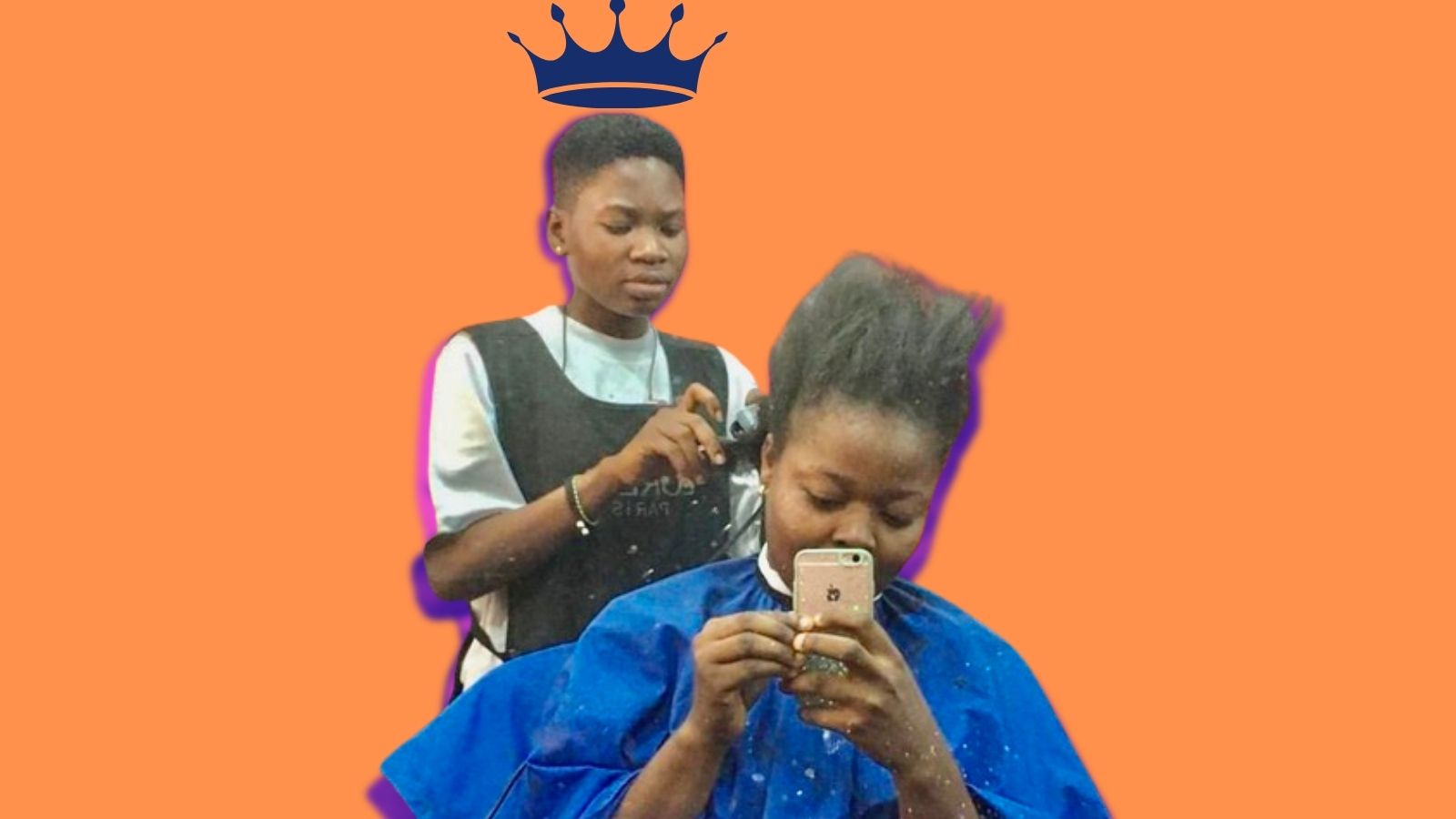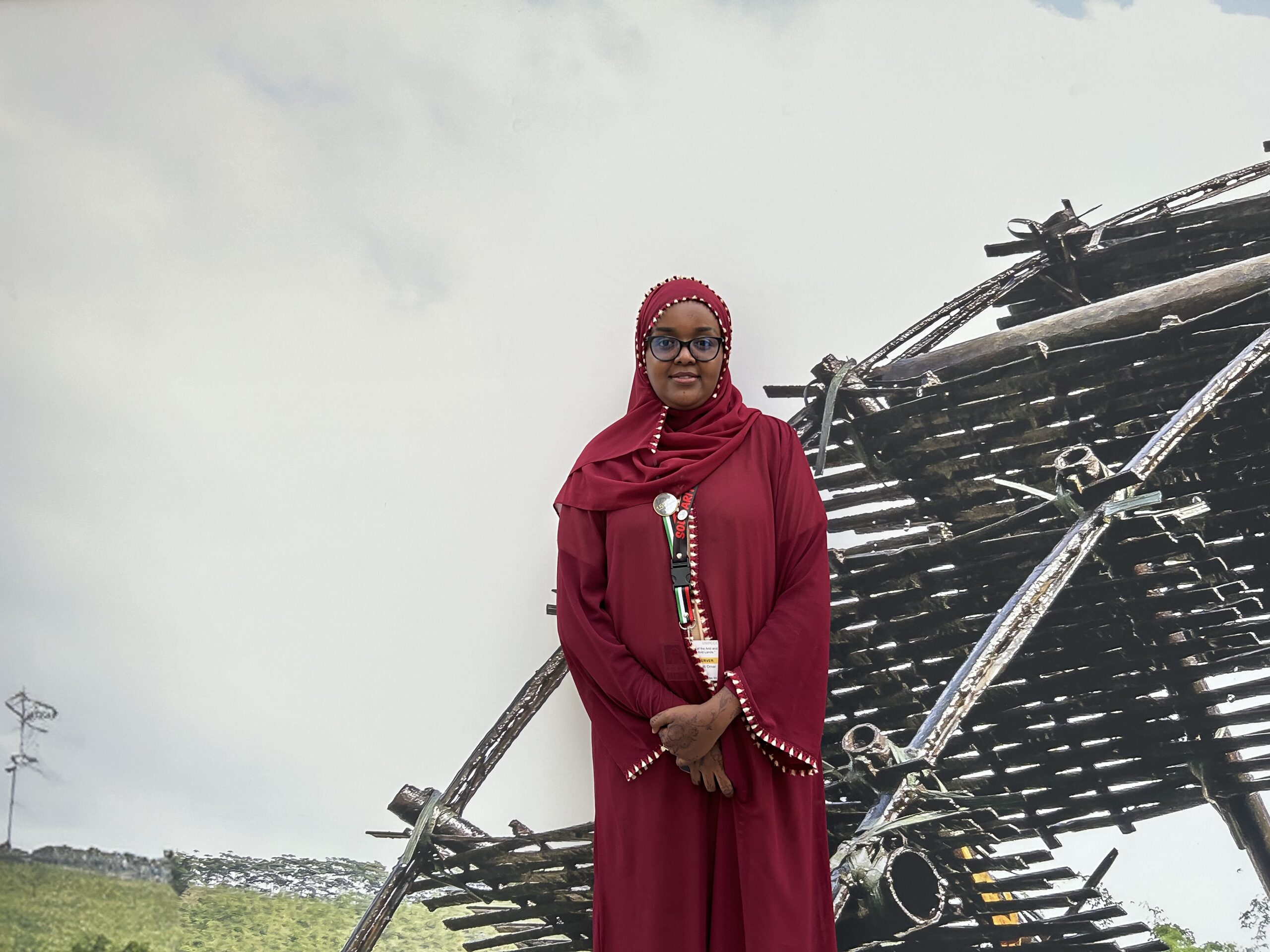In Ilorin, Kwara State, Rukayat Akodu represents a growing number of young Nigerian girls refusing to be cowed by tradition and venturing into fields seen as an exclusive reserve for men.
In this ancient city, home to the Ilorin Emirate and kaftan-wearing public servants, Akodu stands out not only for her skills with the clipper but also for her unwavering dedication to a craft she fell in love with after she was done with secondary school.
“The zeal to start this came when I finished secondary school. I wanted to acquire a skill, but I was clueless about what to choose. I noticed my siblings were going to learn tailoring and hairdressing, but that didn’t appeal to me. I was in search of something that truly interested me. I finally chose to barb,” she shared.
So in 2018, while still in Lagos, Nigeria’s commercial capital, she began learning at a shop near her house. Akodu’s parents, recognising their daughter’s stubborn desire to learn, fully supported her choice.
“I am very lucky to have parents who understand and believe in me. Others, upon hearing that I was learning how to barber, either thought it was a mere joke or a decision I hadn’t thought through well enough. This is because I am a woman who is not supposed to learn a skill that belongs to men – just as people perceive,” Akodu added.
But despite her parent’s backing, it wasn’t an easy sail for the 23-year-old.
“I spent six months in the first place I registered to learn. It was a bit restrictive because my boss didn’t always want me to practice. For months, I was only observing and not trying it out on anyone. I repeatedly tried to assure people in the shop of my capabilities, but it didn’t seem to work,” she explained further.
As she prepared to take university entrance exams, Akodu knew she needed a place where she would be allowed to learn and hone her skills, so she left the first shop and sought a more supportive environment.
New city, new struggles
When Akodu was admitted to the University of Ilorin in Kwara State, she insisted that her academic pursuit would not get in the way of her passion for cutting clean shaves, so she sought to join some of the barber shops around her school as a barber-an opportunity to earn and continue growing in her skills.
At this point, she was confident in her skills. “I came to Ilorin with the mindset that barbering would be easy for me because I knew I could do it. I had practised on some of my friends in Lagos, and it always came out neat and better than they expected.” yet, she didn’t initially find Ilorin easy to sail. “Men were not willing to sit for a woman like me to barber their hair because it was unusual; they didn’t trust me. Some even claimed it was an abomination for a woman to touch a man’s hair,” reechoing many of the traditional beliefs in Africa’s largest economy used to hold women down.
Despite these initial setbacks, Akodu remained undeterred.
“A lot of people didn’t believe what I said I could do. Most of them thought it was ridiculous to let a woman, especially me, touch their hair. They assumed I’d experimented somewhere and thought it was good enough, and now I was imposing more experiments on them,” she shared.
So Akodu devised a plan; she would start with the people around her, and if they could trust her, her good works would speak for her. That plan turned out to be a turning point for the now 300-level biochemistry student.
“When I started barbering people’s hair around our lodge, others were surprised. Many who weren’t present to witness it thought it was a lie. I always left my customers amazed because they were initially sceptical about what I was doing with their hair until I completed the task,” she explained excitedly.
And with every hair Akodu cut, she had gotten herself an advocate, helping to spread the word about her skilful work and bringing her more customers. With her newfound popularity, Akodu got a job at Combs Salon in Ilorin.
Now, Akodu has garnered for herself a devoted clientele, even amongst her society’s elite.
“Because I do a neat job, my customers return for more. Customers frequently go on business trips to Abuja, Lagos, and other parts of the country. Surprisingly and yet encouraging, they never get their hair cut elsewhere until they return home. Even Senator Salihu Mustapha, the Turaki of Ilorin, trusts me to trim his hair always,” she proudly stated.
While it has not been an easy ride for Akodu, she said she finds fulfilment in barbing. She hopes to open her salon after school and continue pushing the boundaries of societal stereotypes about women.
“Giving up what you want to do because of societal perceptions is stifling, letting them win. Let people’s criticism fuel you to achieve even more. I am certain the future will speak for itself,” she said.
Rukayat Akodu, a young woman from Ilorin, Kwara State, exemplifies a growing trend of Nigerian girls defying traditional gender roles. Instead of pursuing typical female-dominated professions, Akodu chose barbering, a field traditionally seen as male-dominated. She discovered her passion post-secondary school and started learning the trade in 2018 with full support from her understanding parents.
Initially, Akodu faced significant challenges, including skepticism and lack of practice opportunities in her first shop. However, she persevered and sought a more supportive environment. Moving to the University of Ilorin, Akodu balanced her academic responsibilities with her passion for barbering. Despite facing resistance from men unwilling to let a woman cut their hair, she remained determined.
To build trust, Akodu began cutting hair for people around her lodgings, which eventually led to a growing clientele impressed by her skill. Her dedication earned her a job at Combs Salon in Ilorin and a loyal customer base, including notable figures like Senator Salihu Mustapha.
Akodu continues to break stereotypes, finding fulfillment in her work and aspiring to open her own salon after school. She encourages others not to succumb to societal perceptions, believing that determination and proving critics wrong will pave the way for future successes.






